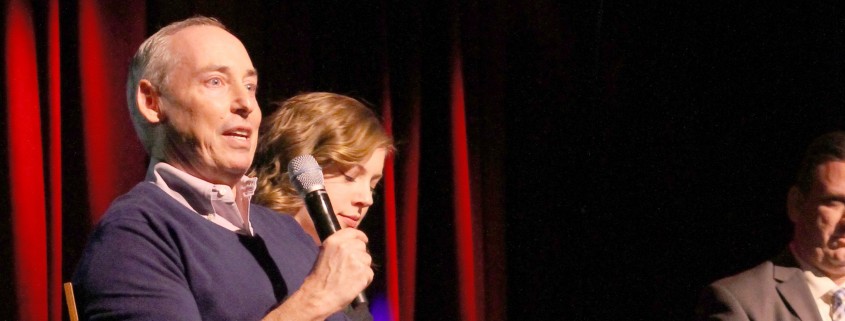Unruh Institute makes diversity focus of panels
The USC Jesse M. Unruh Institute of Politics works with a variety of student organizations to increase political engagement, and this semester the institute is unveiling a new set of programs geared toward student minorities having their voices heard.
These programs include partnering with student-run organizations such as the Latina/o Student Assembly, Black Student Assembly and Asian Pacific American Student Assembly. Partnerships and outreach will not only give attention to people who live in the community outside of USC, but an opportunity for them to express issues that lie within minority communities.
Erika Maldonado, the programs associate at Unruh, says the institute’s goal is to get a more diverse demographic of students involved in politics and Unruh programming.
“We like to partner with different cultural assemblies on campus; we partner with them, but we also have a political spin on things,” Maldonado said. “This semester, we are working with the [Latina/o] Student Assembly, Black Student Assembly and APASA. One of the programs we are launching is diversity in politics, and it’s getting all types of people, not just politically inclined students, to be involved in politics.”
Ali Bissonnette, deputy director of the Unruh Institute, said that the diversity program hopes to expand the amount of people involved with the Unruh Institute.
“Our programming switched this semester,” Bissonnette said. “We used to work frequently with certain groups, and we always see the same faces. Now, our goal is to get all student organizations involved in politics. We don’t believe millennials not wanting to get involved in politics. We see so many young students wanting to help their community.”
Unruh has also created the Civic Engagement Teaching Internship, which informs high school students about the process of getting involved with their community.
“The Civic Engagement Teaching Internship is where we go out to our local community classrooms and talk to students asking them what they see in their community and how voting can actually help alleviate some of those issues,” Bissonnette said. “What we see is both high school and college students [who] want to volunteer and take part in making their community a better place.”
Tania Mercado, the director of government affairs for Unruh, spoke about opportunities for young students to get involved in politics.
“Every semester, we take a group of students up to Sacramento where they have the opportunity to talk to representatives, government staffs and journalists, which help students get involved in politics,” she said.
Dan Schnur, Director of the Unruh Institute, says that the program is coming on the heels of a greater national trend of minority involvement in politics.
“There is no question that we’ve seen a dramatic increase of students from the minority communities getting involved in government and politics,” Schnur said.

